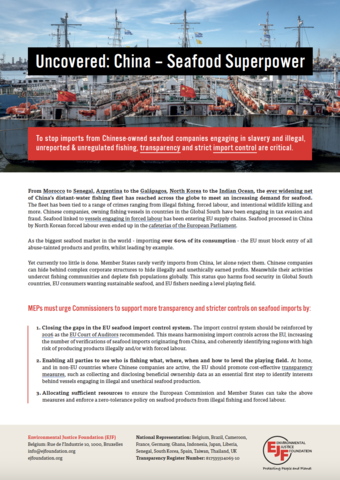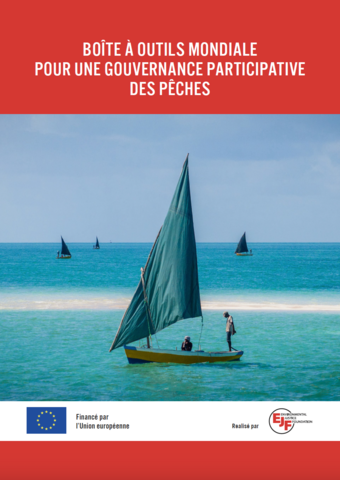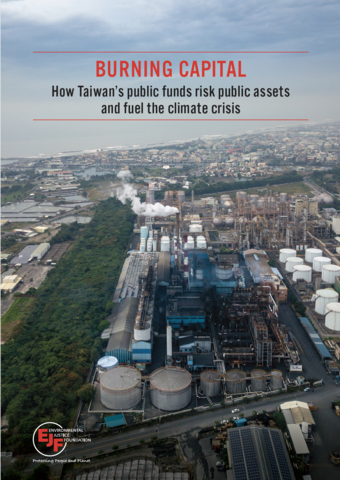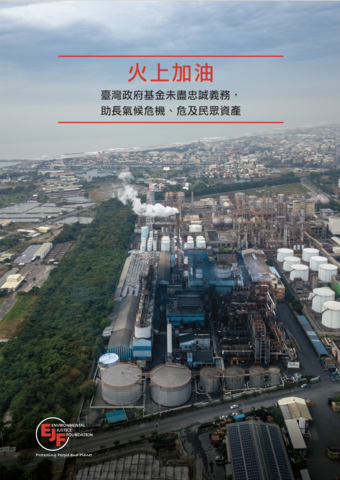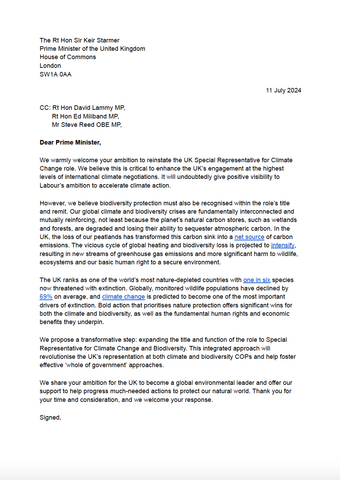Uncovered: China – Seafood Superpower: To stop imports from Chinese-owned seafood companies engaging in slavery and illegal, unreported & unregulated fishing, transparency and strict import control are critical. As the biggest seafood market in the world - importing over 60% of its consumption - the EU must block entry of all abuse-tainted products and profits.
Boîte à outils mondiale pour une gouvernance participative des pêches: Cette boîte à outils a été produite par Environmental Justice Foundation (EJF) avec le financement de l’Union européenne (UE). Elle fournit des conseils techniques aux professionnels des ONG qui travaillent auprès des communautés de pêcheurs artisanaux et cherchent à leur donner les moyens de lutter contre la pêche illicite, non déclarée et non réglementée.
NGOs' Concerns Regarding References to Deep Sea Mining in Mario Draghi's Report: The Future of European Competitiveness: NGOs urge European Commission President Ursula von der Leyen to maintain the Commission's standpoint on deep-sea mining and, in line with the precautionary principle, continue to call for a global moratorium on deep-sea mining.
Funding, restoring and protecting global wetlands: Wetlands store twice as much carbon as all the world’s forests combined, making them essential for ensuring a stable climate. They also support the livelihoods of over a billion people worldwide. However, we are losing them at a rate three times faster than forests. Global commitments to protect and restore wetlands remain underfunded.
Burning Capital: How Taiwan’s public funds risk public assets and fuel the climate crisis: Reaching net zero by 2050 is a legally binding target for the Taiwanese government, but continuing investments in fossil fuels hamper the country’s efforts to slash emissions and mean the government is failing in its fiduciary duty as a fund manager for the people. It is crucial that Taiwan actively mitigates the climate crisis by transforming its public fund investments, together with all other sectors.
La gestion des risques liés aux activités de pêche maritime professionnelle au regard des enjeux socio-économiques en zone Natura 2000 : Une pratique administrative incompatible avec les obligations de la France au titre de la Directive Habitats: La mise en œuvre de la Directive Habitats par la France, en ce qui concerne la prise en compte des risques liés aux activités de pêche maritime professionnelle lors de l’élaboration des mesures de gestion, apparaît incompatible avec ses obligations au titre du droit européen. Cette note a pour objet de rappeler les obligations incombant à la France au titre de la Directive Habitats en matière de protection du milieu marin et de prise en compte des enjeux socio-économiques dans l’élaboration et la mise en œuvre des mesures de conservation, et d’attirer l’attention des services de l’État sur le défaut de conformité de la pratique administrative française en la matière.
L'urgence d'une mise en oeuvre effective du droit dans les sites Natura 2000: Les associations Environmental Justice Foundation (EJF) et Défense des Milieux Aquatiques (DMA) recommandent au gouvernement français d’activer les différents leviers légaux existants pour remplir efficacement ses engagements en matière de biodiversité, climat et restauration des écosystèmes, tout en revalorisant les métiers de la petite pêche côtière à faible impact environnemental.
Special Representative for Climate Change and Biodiversity letter to the UK Government: The UK Special Representative for Climate Change role will be critical to enhance the UK’s engagement at the highest levels of international climate negotiations and will undoubtedly give positive visibility to Labour’s ambition to accelerate climate action. However, we believe biodiversity protection must also be recognised within the role’s title and remit.
South American civil society organisations to Leaders of the European Parliament: Please help save the Pantanal from unprecedented fires: We, the undersigned civil society organizations from Brazil, Bolivia and Paraguay, write to ask for your help to save and restore the world’s largest tropical wetland, the Pantanal, which faces unprecedented fires.
Nature's Unsung Heroes: Why Wetlands Matter: Wetlands play a disproportionately large role in supporting biodiversity, maintaining human health and stabilising our global climate. Despite this, the rate of wetland loss far outpaces other biomes, making them one of our planet's most threatened ecosystems. We must reverse this now.

